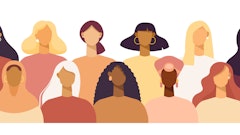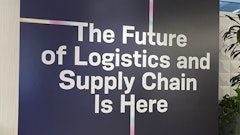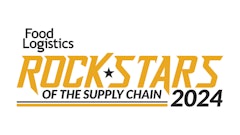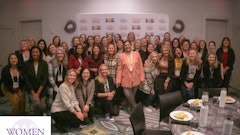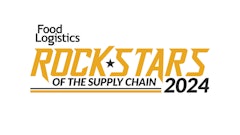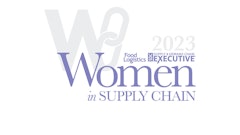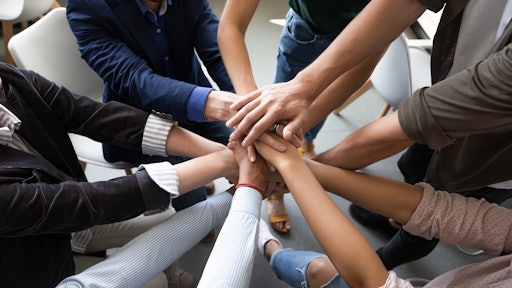
It's March and if you're tuned into social media, you know what today is: International Women's Day. Celebrated annually on March 8th, this day highlights the achievements and contributions of women while advocating for gender equality across the board. Though it's said all year round, it's important to take a second to voice that in logistics specifically, fostering gender diversity is crucial to create a more inclusive and innovative supply chain.
The thing about gender diversity is that it's not just a matter of equality, but rather, a strategic business imperative. In the supply chain, diversity brings a variety of perspectives, skills and approaches that can enhance problem-solving — and we have a fair share of those. Robyn Booth, vice president of projects & implementations at GEODIS in Americas, and chair of the Americas’ GEODIS Women’s Network, says awareness is key and pinpointing where disparities exist relies on analyzing and evaluating your diversity data to enhance an organizations standard.
It's essential to challenge stereotypes in traditionally 'male-dominated' spaces to create an environment where women feel empowered to enter the field and thrive. To achieve gender diversity in the supply chain, organizations must prioritize equal opportunities for career development, training and advancement.
"Employee resource groups (ERGs) are a great way to not only maintain awareness, but to actively support your workforce diversity goals. Real change happens when all teammates are engaged and encouraged to become involved, not just senior leadership. ERGs also allow organizations to focus on deliberate areas of improvement. At GEODIS, for example, the GEODIS Women’s Network (GWN) is focused on improving gender balance and inspiring women to reach their full potential. GWN in the Americas region focuses on three key pillars: promoting diversity, gender balance and equal opportunity for everyone. Through events and summits, we are laying the foundation to retain and develop female leaders as well as bring enhanced awareness to workplace challenges," says Booth.
Mentorship programs, leadership training and networking events can help women build the skills and confidence needed to excel in their roles. When it comes to mentorship and sponsorship, Booth says quotes like “choose people who will say your name in a room full of opportunities” rings true, especially when it comes to advancing women in supply chain.
"In my own career in the industry, it’s been equally meaningful to be on both sides of the mentorship and sponsorship experience. This means not only having somebody in my court who is rooting for me, but also being that person for other women in this industry. Many decisions are made behind closed doors, so having someone in the room who knows you and your work and will vouch for you is crucial to bringing more advancement opportunities to women. This goes both ways—not only having someone who will sponsor you, but also continuing the cycle by doing the same for other women," explains Booth.
Days like International Women's Day place a spotlight on the achievements of women that then foster growth for other women to follow suit. Similarly, each year many men and women in the industry attend the Women in Supply Chain Forum, hosted by Supply & Demand Chain Executive and Food Logistics, to spark those conversations that candidly speak to the experiences of women in supply chain, and collectively share their burdens and successes, which cultivates a feeling of understanding. By celebrating success stories, organizations can showcase the diverse career paths available and emphasize the positive impact of gender diversity on business outcomes.
Research suggests that diverse teams lead to better business outcomes. The inclusion of women in leadership roles can act as a beacon of encouragement for others to self-advocate. At GEODIS for example, they are globally led by a female CEO, Marie-Christine Lombard. Booth explains that with a woman as CEO, they're signaling loud and clear that women have access to leadership positions.
"Under her leadership, we have truly committed to advancing gender equality and increasing the number of women in managerial positions within a traditionally male-dominated field. In 2017, 13% of women at GEODIS held leadership positions globally. Today, nearly 28% of women at GEODIS hold leadership positions globally (executive committee level)," describes Booth. Making a trackable impact on the way leadership reflects a workforce— and another action towards greater diversity.
This International Women's Day let's recognize the importance of gender diversity in the supply chain and commit to creating an inclusive and equitable industry. By breaking stereotypes, promoting equal opportunities, implementing flexible work policies, investing in education and celebrating success stories, we can pave the way for a space that benefits everyone, fostering a future where women play a significant role.





